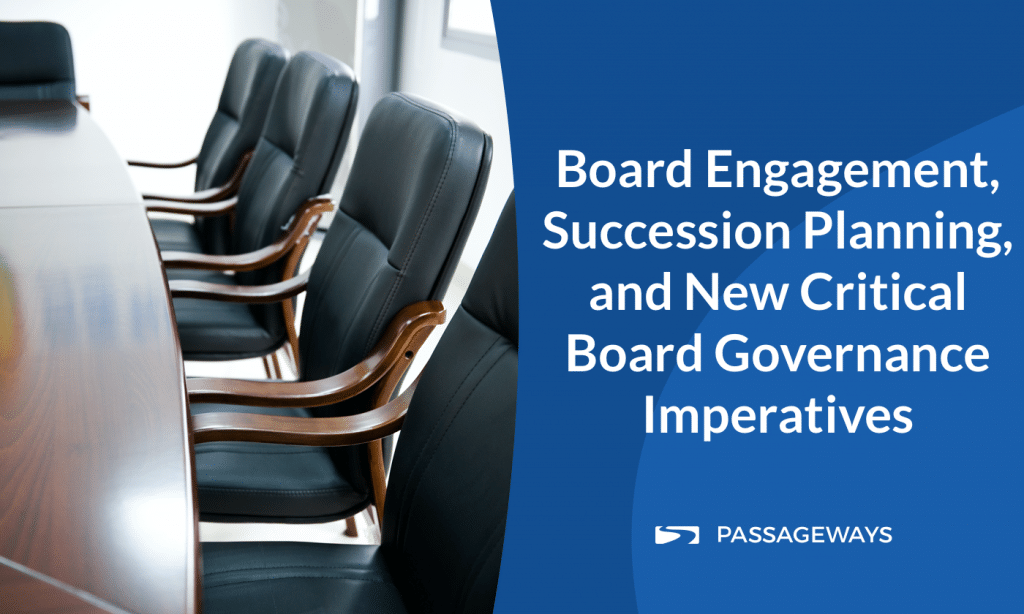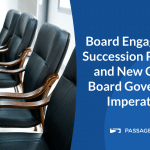
Directors spend approximately one full month a year on board-related matters. What can you do to ensure that boards are engaged and that this valuable time is maximized effectively? Dysfunctional boards waste time, and, more importantly, dysfunction depletes the organization’s resources through unwise decisions and missed opportunities. Highly functioning boards have the courage to step back and take a hard look in the mirror to grasp what is working well and what needs to be improved.
“Dysfunctional boards waste time, and, more importantly, dysfunction depletes the organization’s resources through unwise decisions and missed opportunities.
Highly functioning boards have the courage to step back and take a hard look in the mirror to grasp what is working well and what needs to be improved.”
Stuart R. Levine, Chairman and CEO, Stuart Levine & Associates
One best practice that will help your board achieve and maintain peak performance is a board assessment. Annual evaluations of the full board, as well as of the committees, set an important baseline for engagement of all directors. Retaining a qualified independent third party to assist in this process encourages candor and delivers an agnostic perspective. This initiative engages the board to identify and maintain its strengths and identifies opportunities for the continuing strengthening of the culture.
Successful boards are rooted in mission-driven core values and focus on creating long-term sustainable value for their members and customers. They are fully engaged, and they ensure their organizations have the requisite skills and tools to maintain open communication and constructive challenges both within the board and with C-suite executives. They address the continuing obligation for succession planning. They focus on strategy, with an in-depth understanding of where the organization is and where it is going. A critical addition to board conversations is having at least one director with expertise in current technology and cybersecurity.
Well-functioning boards recognize the speed at which customers and members, employees, and everyday realities are dramatically changing, especially across generations from iGen and Millennials through retirees. For example, if you have not read the fascinating book, Big Shifts Ahead by John Burns and Chris Porter, I highly recommend it. The book’s subtitle, Demographic Clarity for Businesses, describes the speed at which each decade’s customers, employees, and realities are dramatically changing. These changes are critical to understand to protect shareholder needs and interests and to provide the necessary financial and human capital oversights.
Highly functioning boards operate in a zone of alignment and collaboration with senior management around ethics and values. With the rise of social media and deteriorating public trust, CEOs are being held to even higher levels of ethical accountability, creating a greater need for board alignment and transparency around succession-related matters.
“Highly functioning boards operate in a zone of alignment and collaboration with senior management around ethics and values.”
STUART R. LEVINE, CHAIRMAN AND CEO, STUART LEVINE & ASSOCIATES
Asking yourself these excellent questions can help you determine the level of assessment that is required.
- Board Culture: Is it collegial? Does your board and senior management have strong internal communication? How is consensus formed? Does collegiality contribute to frank discussion; does it inhibit it? Can your board’s culture sustain challenging conversations or a crisis? Is your board bringing the right issues to the table?
- Director Performance: Are directors adequately prepared? Is “airtime” well distributed? Is there sufficient on-boarding? Are there appropriate levels of director accountability?
- Strategic Planning and Risk Management: Is your board engaged in strategic conversations at every meeting? Are you clear on what is considered in enterprise risk, and how risk is evaluated? Are you evaluating the assumptions underpinning your strategic plan?
- Succession Planning: Is your board comfortable engaging in succession planning discussions with your CEO? Is there succession planning for board members, as well as C-suite executives?
- Logistics: Is meeting frequency adequate? Are board materials sufficient and provided in a timely manner?
- Committees: Are the correct committees in place? How well are they functioning?
- Board Composition: Does diversity in talent, skills, race, gender, and outlook support the company’s needs? Should individual members leave the board due to age, longevity, or lack of participation, collegiality, or needed skills? Do your board members effectively represent your customer base? Do they possess the talent needed for your current and future strategies?
- Continuous Learning: How are outside perspectives and new information acquired? Do board members appreciate, and are they equipped to handle the rapid demographic and related changes affecting customers, employees, and the business environment.
Highly functioning, engaged boards do all that they can to up their game. Qualified independent third-party assistance on a periodic basis is a tool that will help.
About The Author

- Stuart R. Levine is Chairman of the Board and CEO for STUART LEVINE & ASSOCIATES. Mr. Levine has significant board and executive leadership experience across multiple disciplines including financial services, technology, and healthcare specializing in strategy, strategic communication, board governance, leadership development, customer focus and large-scale change management. He was the former global CEO for Dale Carnegie & Associates, Inc. operating in 72 countries. Stuart is also the international best-selling leadership author of "The Six Fundamentals of Success," "Cut to the Chase," and the co-author of Simon & Schuster’s international best-seller "The Leader in You."

